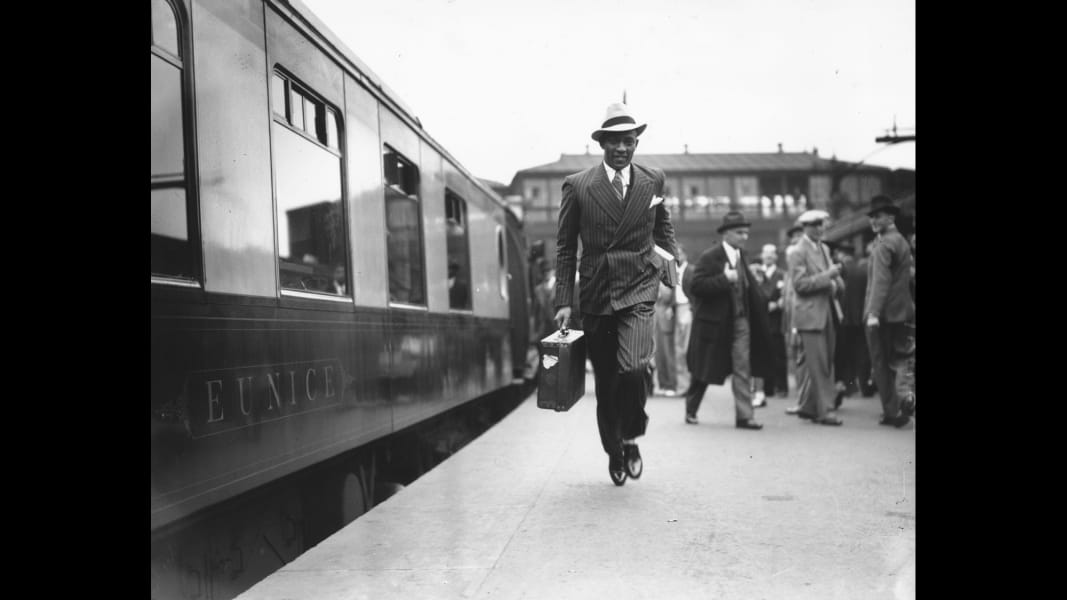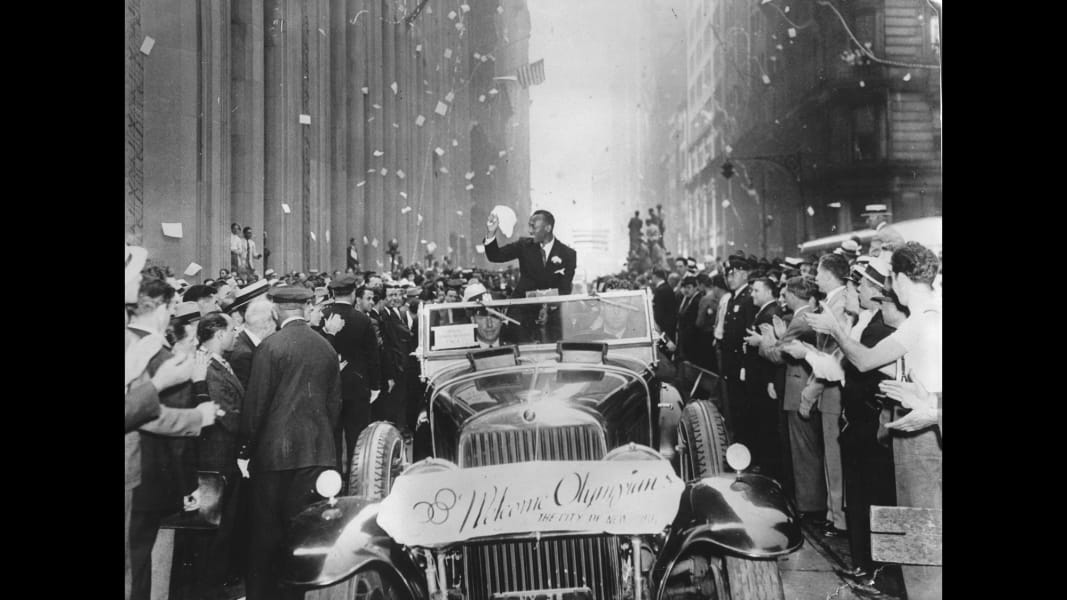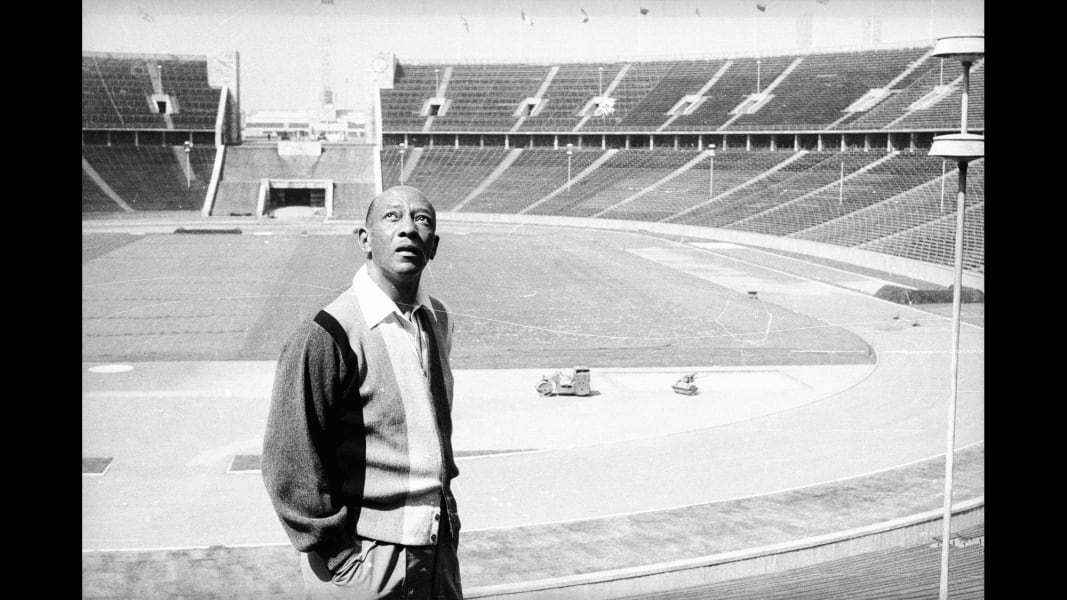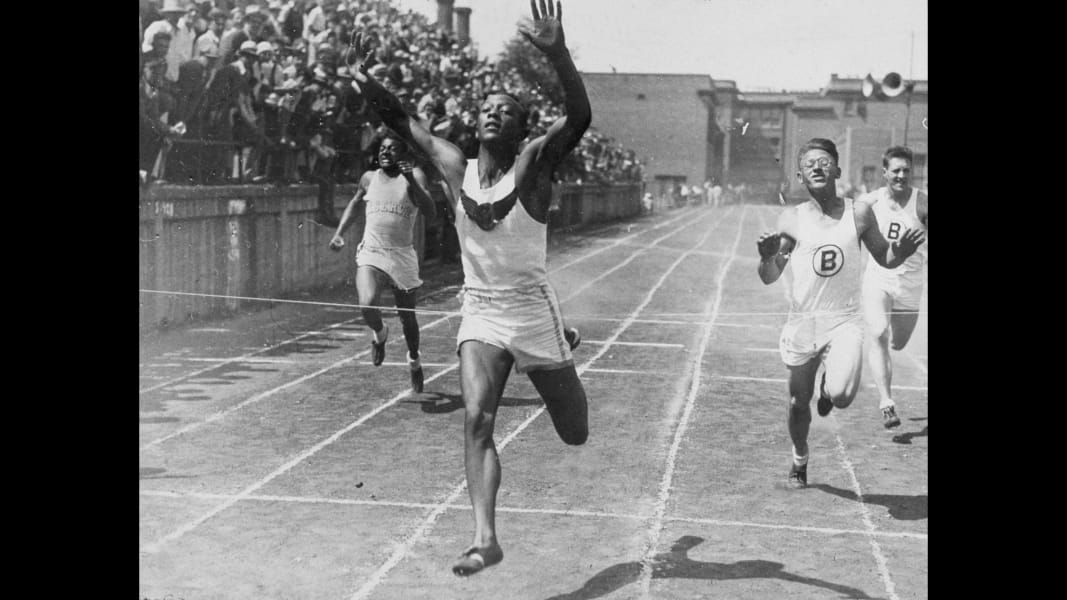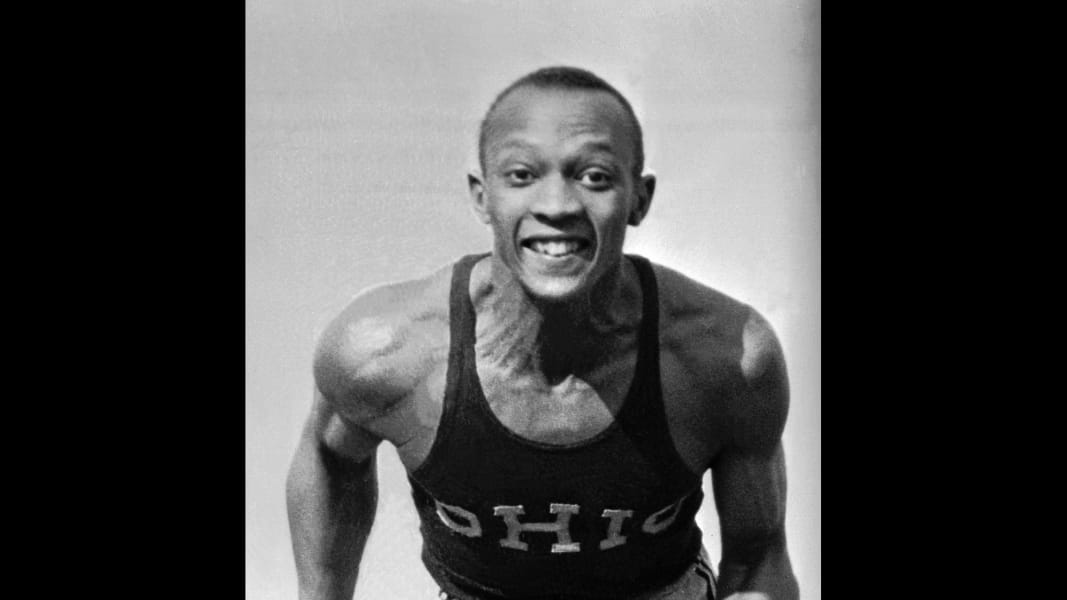Share
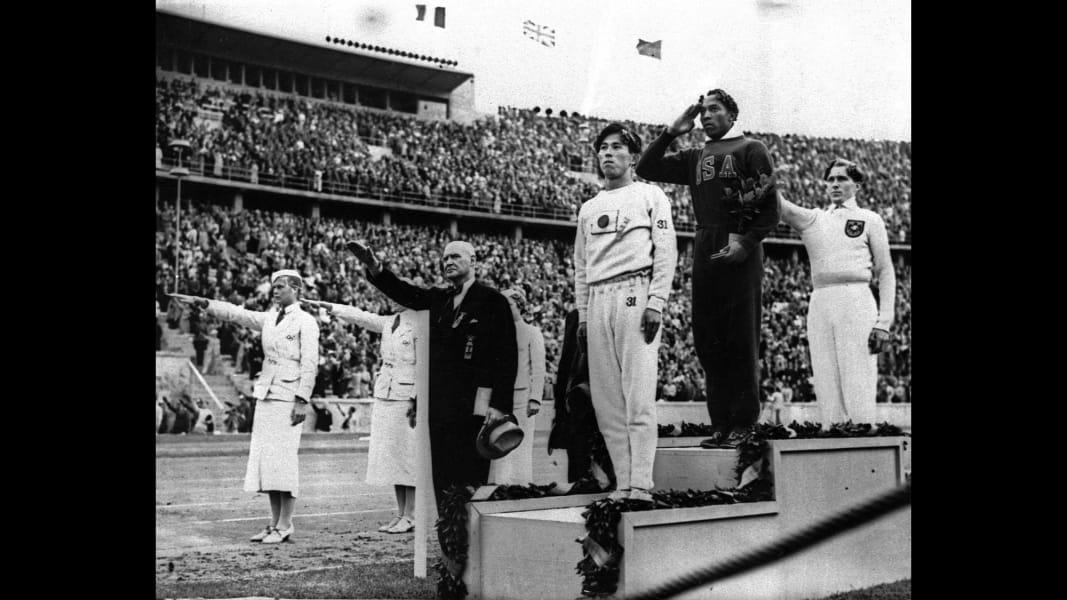

1 of 15
U.S. track star Jesse Owens stands atop the medal stand after he won the long jump at the 1936 Olympics in Berlin. It was one of four gold medals that Owens won at the Berlin Games, which took place during the rule of Adolf Hitler and Nazi Germany. Hitler wanted the Games to showcase what he believed to be the racial superiority of white Aryan athletes, but Owens spoiled that idea and became a cultural icon. AP
Owens wins a 100-meter race in high school in June 1932. Owens, the son of a sharecropper and grandson of slaves, was born in Alabama in 1913. His family moved to Cleveland when he was a child, and he went on to attend the Ohio State University. New York Times Co./Archive Photos/Getty Images
Owens poses in his Ohio State track jersey in April 1935. His full name was James Cleveland (J.C.) Owens. He got the nickname Jesse from his first schoolteacher in Cleveland. She misunderstood Owens when he said J.C., and she put his name down as Jesse. AP
Owens had perhaps the greatest single day in track-and-field history on May 25, 1935. During a college meet in Ann Arbor, Michigan, the "Buckeye Bullet" broke three world records and tied a fourth -- all within a 45-minute span. AP
Owens married Minnie Ruth Solomon in July 1935. AP
Owens fills up a car with gas in July 1935. He worked as a gas-station attendant to help pay for his college. New York Times Co./Archive Photos/Getty Images
Owens practices the long jump on a boat as he travels to Berlin for the Olympics in 1936. JOE CANEVA/AP
Owens, far right, begins a race at the Berlin Games. The 22-year-old won gold medals in the 100 meters, the 200 meters, the 4x100 relay and the long jump. Central Press/Hulton Archive/Getty Images
Owens crosses the finish line to win the 100 meters in 10.3 seconds. It tied an Olympic record. Keystone/Hulton Archive/Getty Images
Owens is interviewed by reporters in Berlin. Hulton Archive/Getty Images
Owens takes part in a long-jump event in London in August 1936. Central Press/Hulton Archive/Getty Images
Owens signs autographs for fans in London. J. A. Hampton/Hulton Archive/Getty Images
Owens dashes for a train at London's Waterloo station before heading back to the United States. Fox Photos/Hulton Archive/Getty Images
Owens takes part in a ticker-tape parade in New York in September 1936. Imagno/Hulton Archive/Getty Images
Owens revisits the Berlin stadium in July 1965. "I wanted no part of politics," Owens said in Tony Gentry's book "Jesse Owens, Champion Athlete." "And I wasn't in Berlin to compete against any one athlete. The purpose of the Olympics, anyway, was to do your best. As I'd learned long ago from (coach) Charles Riley, the only victory that counts is the one over yourself." Owens died of lung cancer in 1980. He was 66 years old. Express/Hulton Archive/Getty Images
